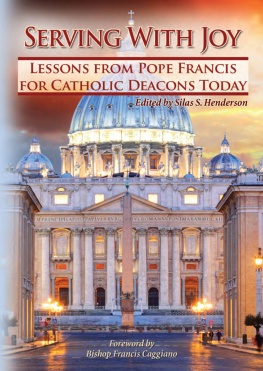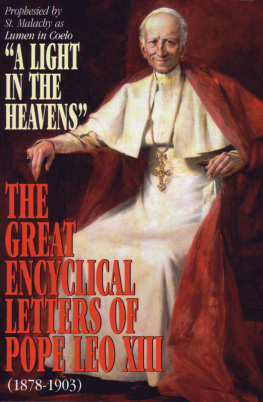In the progress of the conversation he related a multitude of facts which satisfied me as to the general disposition of the people; but he gave me little satisfaction as to the measures taken for improving this disposition, for driving the business on with vigour if it tended to a revolution, or for supporting it with advantage if it spun into a war. When I questioned him concerning several persons whose disinclination to the Government admitted of no doubt, and whose names, quality, and experience were very essential to the success of the undertaking, he owned to me that they kept a great reserve, and did, at most, but encourage others to act by general and dark expressions.
I received this account and this summons ill in my bed; yet, important as the matter was, a few minutes served to determine me. The circumstances wanting to form a reasonable inducement to engage did not escape me. But the smart of a Bill of Attainder tingled in every vein; and I looked on my party to be under oppression and to call for my assistance. Besides which I considered, first, that I should certainly be informed, when I conferred with the Chevalier, of many particulars unknown to this gentleman; for I did not imagine that you could be so near to take arms, as he represented you to be, on no other foundation than that which he exposed. And, secondly, that I was obliged in honour to declare, without waiting for a more particular information of what might be expected from England, since my friends had taken their resolution to declare, without any previous assurance of what might be expected from France. This second motive weighed extremely with me at that time; there is, however, more sound than sense in it, and it contains the original error to which all your subsequent errors, and the thread of misfortunes which followed, are to be ascribed.
My resolution thus taken, I lost no time in repairing to Commercy. The very first conversations with the Chevalier answered in no degree my expectations; and I assure you, with great truth, that I began even then, if not to repent of my own rashness, yet to be fully convinced both of yours and mine.
He talked to me like a man who expected every moment to set out for England or Scotland, but who did not very well know for which. And when he entered into the particulars of his affairs I found that concerning the former he had nothing more circumstantial nor positive to go upon than what I had already heard. The advices which were sent from thence contained such assurances of success as it was hard to think that men who did not go upon the surest grounds would presume to give. But then these assurances were general, and the authority seldom satisfactory. Those which came from the best hands were verbal, and often conveyed by very doubtful messengers; others came from men whose fortunes were as desperate as their counsels; and others came from persons whose situation in the world gave little reason to attend to their judgment in matters of this kind.
The Duke of Ormond had been for some time, I cannot say how long, engaged with the Chevalier. He had taken the direction of this whole affair, as far as it related to England, upon himself, and had received a commission for this purpose, which contained the most ample powers that could be given. After this, one would be apt to imagine that the principles on which the Pretender should proceed, and the Tories engage, in this service had been laid down; that a regular and certain method of correspondence had been established; that the necessary assistances had been specified; and that positive assurances had been given of them. Nothing less. In a matter as serious as this, all was loose and abandoned to the disposition of fortune. The first point had never been touched upon; by what I have said above you see how little care was taken of the second; and as to the third, the Duke had asked a small body of regular forces, a sum of money, and a quantity of arms and ammunition. He had been told in answer by the Court of France that he must absolutely despair of any number of troops whatever, but he had been made in general to hope for some money, some arms, and some ammunition; a little sum had, I think, been advanced to him. In a case so plain as this it is hard to conceive how any man could err. The assistances demanded from France at this time, and even greater than these, will appear, in the sequel of this relation, by the sense of the whole party, to have been deemed essentially necessary to success. In such an uncertainty, therefore, whether even these could be obtained, or rather with so much reason to apprehend that they could not, it was evident that the Tories ought to have lain still. They might have helped the ferment against the Government, but should have avoided with the utmost care the giving any alarm or even suspicion of their true design, and have resumed or not resumed it as the Chevalier was able or not able to provide the troops, the arms, the money, etc. Instead of which those who were at the head of the undertaking, and therefore answerable for the measures which were pursued, suffered the business to jog merrily on. They knew in general how little dependence was to be placed on foreign succour, but acted as if they had been sure of it; while the party were rendered sanguine by their passions, and made no doubt of subverting a Government they were angry with, both one and the other made as much bustle and gave as great alarm as would have been imprudent even at the eve of a general insurrection. This appeared to me to be the state of things with respect to England when I arrived at Commercy.
The Scots had long pressed the Chevalier to come amongst them, and had of late sent frequent messages to quicken his departure, some of which were delivered in terms much more zealous than respectful. The truth is, they seemed in as much haste to begin as if they had thought themselves able to do the work alone; as if they had been apprehensive of no danger but that of seeing it taken out of their hands and of having the honour of it shared by others. However, that which was wanting on the part of England was not wanting in Scotland; the Scots talked aloud, but they were in a condition to rise. They took little care to keep their intentions secret, but they were disposed to put those intentions into immediate execution, and thereby to render the secret no longer necessary. They knew upon whom to depend for every part of the work, and they had concerted with the Chevalier even to the place of his landing.
There was need of no great sagacity to perceive how unequal such foundations were to the weight of the building designed to be raised on them. The Scots, with all their zeal and all their valour, could bring no revolution about unless in concurrence with the English; and among the latter nothing was ripe for such an undertaking but the temper of the people, if that was so. I thought, therefore, that the Pretenders friends in the North should be kept from rising till those in the South had put themselves in a condition to act; and that in the meanwhile the utmost endeavours ought to be used with the King of France to espouse the cause; and that a plan of the design, with a more particular specification of the succours desired, as well as of the time when and the place to which they should be conveyed, ought to be written for;all which I was told by the Marshal of Berwick, who had the principal direction at that time of these affairs in France, and I daresay very truly, had been often asked, but never sent. I looked on this enterprise to be of the nature of those which can hardly be undertaken more than once, and I judged that the success of it would depend on timing as near as possible together the insurrection in both parts of the island and the succours from hence. The Pretender approved this opinion of mine. He instructed me accordingly, and I left Lorraine after having accepted the Seals much against my inclination. I made one condition with him; it was thisthat I should be at liberty to quit a station which my humour and many other considerations made me think myself very unfit for, whenever the occasion upon which I engaged was over, one way or other; and I desire you to remember that I did so.








